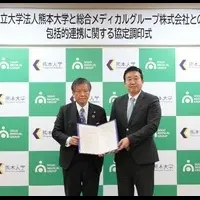
Robert Thomas Advocates for VA Health Care at Capitol Hill Hearing
On March 4, 2025, Robert Thomas, the National President of Paralyzed Veterans of America, delivered a compelling testimony before the House and Senate Veterans' Affairs Committees in Washington, D.C. Joined by various Veterans Service Organizations, Thomas emphasized the urgent need for enhanced funding and improved staffing within the Department of Veterans Affairs (VA), particularly for specialized health care services that are vital for veterans with spinal cord injuries and diseases. The testimonies presented during this session were not merely theoretical; they were grounded in the real-life experiences of veterans who have faced significant challenges in accessing the care they need.
In his opening remarks, Thomas reminded the Congress members that for many veterans, especially those grappling with spinal cord injuries, the VA represents not just a source of medical assistance but a lifeline. He underscored how essential VA's specialized services are for ensuring coordinated, lifelong care—something often difficult to find in the community health facilities. “Without appropriate funding and staff, our veterans are put at risk, forced into the community care system, and denied their rightful choice of medical providers,” he stated.
Throughout the testimony, Thomas articulated several pressing policy priorities for the Paralyzed Veterans of America (PVA) for the year 2025. Among these was a clear call for Congress to address the widespread staffing shortages that plague the VA, the infrastructural issues that currently hinder effective care delivery, and the lack of adequately equipped long-term care facilities for an aging veteran population. These issues are not just logistical; they directly impact the quality of life for veterans.
To concretize his points, Thomas shared the story of U.S. Army veteran Rick Evans from Georgia, a PVA member who faced eight years of unmet care needs in the private sector before discovering the VA. His transformation, he credits to the VA not only saved his life but significantly improved it. Thomas also mentioned U.S. Army veteran Anne Robinson and her husband from Texas, who, like many, have been directly affected by chronic workforce shortages in direct care.
In light of these narratives, Thomas made a poignant observation, stating, “Access to quality care and comprehensive medical support should not be a privilege; it is a promise made to disabled veterans in recognition of their service.” He called on Congress to fulfill this promise by creating legislative frameworks that secure necessary funding and resources, ultimately enabling veterans to lead lives marked by independence and dignity.
The 2025 Policy Priorities put forth by PVA encompass a holistic approach to veteran welfare, breaking down into five categories that include protecting and enhancing specialized health care services, increasing long-term service access for veterans, improving financial security, facilitating better health care access, and defending the rights of veterans with disabilities. Thomas affirmed that PVA aims to serve not just its members but all veterans and their families, ensuring they receive the high-quality health care and benefits deserved.
In conclusion, Thomas reiterated PVA's mission to be a steadfast resource for veterans and their families, particularly those burdened by catastrophic injuries and diseases. “It is imperative that we ensure timely access to specialized, high-quality health care,” he asserted firmly, calling on Congress to heed the testimonies and take action.
To engage further with the PVA’s goals and efforts, individuals can easily access informational resources and advocate for necessary legislative changes by visiting PVA.org/PolicyPriorities. Additionally, those interested in joining PVA’s advocacy efforts can sign up with PVAction Force to stay updated on critical legislative alerts.
Paralyzed Veterans of America is a nonprofit organization focusing on the unique needs of veterans with spinal cord injuries or diseases, aiding in their pursuit of benefits and care, educating the public, and providing resources aimed at improving the quality of care and life for these brave individuals.
In his opening remarks, Thomas reminded the Congress members that for many veterans, especially those grappling with spinal cord injuries, the VA represents not just a source of medical assistance but a lifeline. He underscored how essential VA's specialized services are for ensuring coordinated, lifelong care—something often difficult to find in the community health facilities. “Without appropriate funding and staff, our veterans are put at risk, forced into the community care system, and denied their rightful choice of medical providers,” he stated.
Throughout the testimony, Thomas articulated several pressing policy priorities for the Paralyzed Veterans of America (PVA) for the year 2025. Among these was a clear call for Congress to address the widespread staffing shortages that plague the VA, the infrastructural issues that currently hinder effective care delivery, and the lack of adequately equipped long-term care facilities for an aging veteran population. These issues are not just logistical; they directly impact the quality of life for veterans.
To concretize his points, Thomas shared the story of U.S. Army veteran Rick Evans from Georgia, a PVA member who faced eight years of unmet care needs in the private sector before discovering the VA. His transformation, he credits to the VA not only saved his life but significantly improved it. Thomas also mentioned U.S. Army veteran Anne Robinson and her husband from Texas, who, like many, have been directly affected by chronic workforce shortages in direct care.
In light of these narratives, Thomas made a poignant observation, stating, “Access to quality care and comprehensive medical support should not be a privilege; it is a promise made to disabled veterans in recognition of their service.” He called on Congress to fulfill this promise by creating legislative frameworks that secure necessary funding and resources, ultimately enabling veterans to lead lives marked by independence and dignity.
The 2025 Policy Priorities put forth by PVA encompass a holistic approach to veteran welfare, breaking down into five categories that include protecting and enhancing specialized health care services, increasing long-term service access for veterans, improving financial security, facilitating better health care access, and defending the rights of veterans with disabilities. Thomas affirmed that PVA aims to serve not just its members but all veterans and their families, ensuring they receive the high-quality health care and benefits deserved.
In conclusion, Thomas reiterated PVA's mission to be a steadfast resource for veterans and their families, particularly those burdened by catastrophic injuries and diseases. “It is imperative that we ensure timely access to specialized, high-quality health care,” he asserted firmly, calling on Congress to heed the testimonies and take action.
To engage further with the PVA’s goals and efforts, individuals can easily access informational resources and advocate for necessary legislative changes by visiting PVA.org/PolicyPriorities. Additionally, those interested in joining PVA’s advocacy efforts can sign up with PVAction Force to stay updated on critical legislative alerts.
Paralyzed Veterans of America is a nonprofit organization focusing on the unique needs of veterans with spinal cord injuries or diseases, aiding in their pursuit of benefits and care, educating the public, and providing resources aimed at improving the quality of care and life for these brave individuals.
Topics Health)










【About Using Articles】
You can freely use the title and article content by linking to the page where the article is posted.
※ Images cannot be used.
【About Links】
Links are free to use.